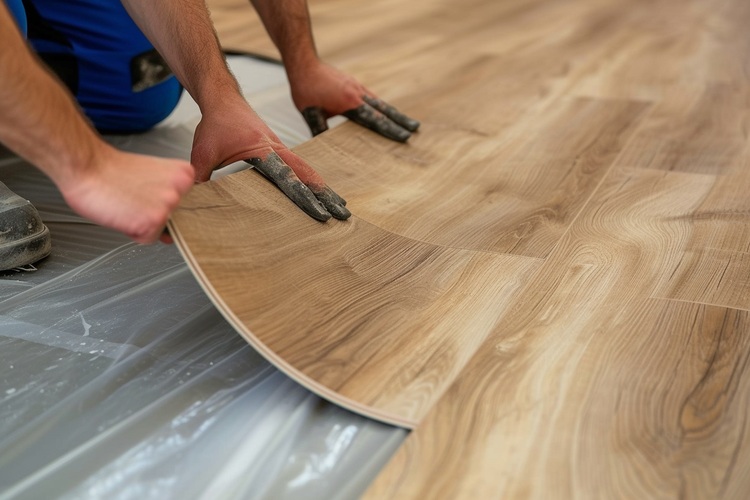Discover Key Insights on Real Estate Investment and Business Setup in the United Arab Emirates for 2025
In 2025, the United Arab Emirates continues to strengthen its position as a global hub for real estate investment and business setup, offering investors and entrepreneurs unparalleled opportunities. With strategic government initiatives, investor-friendly policies, and a thriving economy, the UAE presents a dynamic environment for property ownership, company formation, and long-term growth. From Dubai’s world-class real estate market to Abu Dhabi’s expanding business ecosystem, the country provides a secure, tax-efficient, and innovation-driven platform for those seeking to establish or expand their presence in the region.

Exploring Real Estate Investment Opportunities in the United Arab Emirates
The UAE real estate market offers diverse investment avenues across its seven emirates, with Dubai and Abu Dhabi leading the charge. For 2025, residential properties remain attractive with average rental yields between 5-8% in prime locations, significantly higher than many Western markets. Commercial properties, particularly in free zones and business districts, continue to present strong potential for capital appreciation.
Emerging areas show promise for investors seeking growth opportunities. Ras Al Khaimah and Fujairah are developing rapidly with new master-planned communities and tourism infrastructure, potentially offering better entry points compared to more established markets. Additionally, the UAE’s continued infrastructure development, including transportation networks and smart city initiatives, is expected to positively impact property values in connected areas.
Foreign investors benefit from the UAE’s investor-friendly policies, including residence visa eligibility for property investments exceeding AED 1 million, tax advantages, and 100% ownership rights in designated zones. The market is further supported by government initiatives to diversify the economy beyond oil, creating sustained demand across residential, commercial, and industrial segments.
Understanding Off-Plan Property Investment in Dubai
Off-plan property investment, where investors purchase properties before construction completion, represents a significant segment of Dubai’s real estate market. This approach typically offers price advantages, with developers providing 20-30% discounts compared to completed properties, flexible payment plans stretched over construction periods, and first selection privileges for premium units and locations.
However, off-plan investments carry distinct risks. Construction delays are common, with projects potentially extending 6-18 months beyond scheduled completion dates. Developer credibility varies significantly, making research into track records and financial stability essential. Market volatility between purchase and completion can also impact expected returns, requiring investors to account for potential price fluctuations in their financial planning.
For 2025, several trends are shaping Dubai’s off-plan market. Sustainability-focused developments incorporating green building standards and energy-efficient technologies command premium prices and stronger rental demand. Tech-integrated “smart homes” with advanced automation systems are increasingly standard in new developments. Master-planned communities offering comprehensive lifestyle amenities continue to attract both investors and end-users, particularly those featuring educational facilities, healthcare centers, and recreational spaces.
Starting a Real Estate Business in Dubai as a Foreigner in 2025
Establishing a real estate business in Dubai as a foreigner requires navigating specific regulatory requirements. The primary licensing options include mainland companies (requiring local sponsorship with 51% Emirati ownership), free zone companies (allowing 100% foreign ownership but with certain operational limitations in the local market), or offshore companies (suitable for holding properties but with restricted operations).
The Real Estate Regulatory Agency (RERA) mandates specific requirements for real estate businesses. Companies must maintain a minimum capital of AED 200,000-500,000 depending on the business type, secure a broker’s license requiring professional qualifications and examinations, and provide bank guarantees ranging from AED 1-5 million based on operational scope. Additionally, employing qualified professionals with RERA certification is mandatory for brokerage operations.
For 2025, several business models show particular promise in Dubai’s property market. Property management services catering to foreign investors are experiencing increased demand as international ownership grows. Real estate technology platforms offering virtual tours, digital transactions, and property management solutions align with Dubai’s smart city vision. Specialized consultancy services focusing on investment strategy, legal compliance, and market analysis for international clients present opportunities as the market sophistication increases.
Real Estate Investment Costs and Comparisons in the UAE
Understanding the financial aspects of UAE real estate investment is crucial for making informed decisions. The following table provides a comparison of investment options across different emirates:
| Location | Property Type | Average Price per Sq.Ft. (AED) | Expected ROI (%) | Additional Costs |
|---|---|---|---|---|
| Dubai Downtown | Luxury Apartment | 1,800-2,500 | 4-6% | 4% Transfer Fee, 2% Agent Fee |
| Dubai Marina | Mid-range Apartment | 1,200-1,600 | 5-7% | 4% Transfer Fee, 2% Agent Fee |
| Abu Dhabi Corniche | Luxury Apartment | 1,600-2,200 | 4-5% | 2% Transfer Fee, 2% Agent Fee |
| Sharjah | Mid-range Apartment | 750-950 | 7-9% | 2% Transfer Fee, 2% Agent Fee |
| Ras Al Khaimah | Villa | 700-900 | 8-10% | 2% Transfer Fee, 2% Agent Fee |
Prices, rates, or cost estimates mentioned in this article are based on the latest available information but may change over time. Independent research is advised before making financial decisions.
For establishing a real estate business, initial setup costs vary significantly based on licensing type:
| Business Setup Type | License Cost (AED) | Office Requirement | Additional Fees | Annual Renewal Costs |
|---|---|---|---|---|
| Mainland Company | 15,000-25,000 | Physical office required | 5,000-10,000 (various approvals) | 10,000-20,000 |
| Free Zone Company | 25,000-50,000 | Flexible options available | 2,000-5,000 (registration fees) | 20,000-40,000 |
| Offshore Company | 15,000-20,000 | Virtual office sufficient | 3,000-7,000 (registration fees) | 12,000-18,000 |
Prices, rates, or cost estimates mentioned in this article are based on the latest available information but may change over time. Independent research is advised before making financial decisions.
Future Outlook for UAE Real Estate in 2025
The UAE real estate market is projected to continue its upward trajectory, influenced by several factors. Government initiatives supporting economic diversification, including Expo 2020’s legacy development and Vision 2030 projects, create sustained demand for various property types. Regulatory improvements enhancing market transparency and investor protection are strengthening market fundamentals and increasing international investor confidence.
Demographic shifts are also shaping market dynamics, with increasing expatriate populations seeking both rental and ownership opportunities. Tourism growth continues to drive demand for short-term rental properties and hospitality-related real estate, particularly in Dubai and emerging destinations like Ras Al Khaimah. These converging factors point toward a resilient market with diverse opportunities across multiple segments and price points for 2025.
The UAE real estate landscape offers compelling opportunities for investors and entrepreneurs alike as we look toward 2025. Understanding the nuances of different investment options, regulatory requirements, and market trends is essential for successful participation in this dynamic market. Whether considering off-plan investments in Dubai or establishing a real estate business as a foreigner, thorough research and professional guidance remain key components of any successful strategy in the UAE’s evolving property sector.




